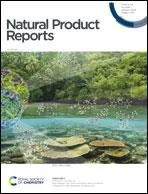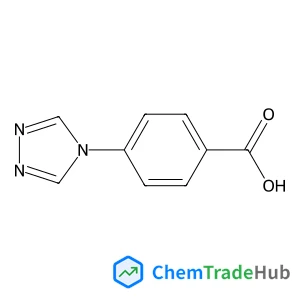Cyanophycin and its biosynthesis: not hot but very cool
文献情報
Itai Sharon, Donald Hilvert, T. Martin Schmeing
Covering: 1878 to early 2023 Cyanophycin is a biopolymer consisting of a poly-aspartate backbone with arginines linked to each Asp sidechain through isopeptide bonds. Cyanophycin is made by cyanophycin synthetase 1 or 2 through ATP-dependent polymerization of Asp and Arg, or β-Asp-Arg, respectively. It is degraded into dipeptides by exo-cyanophycinases, and these dipeptides are hydrolyzed into free amino acids by general or dedicated isodipeptidase enzymes. When synthesized, chains of cyanophycin coalesce into large, inert, membrane-less granules. Although discovered in cyanobacteria, cyanophycin is made by species throughout the bacterial kingdom, and cyanophycin metabolism provides advantages for toxic bloom forming algae and some human pathogens. Some bacteria have developed dedicated schemes for cyanophycin accumulation and use, which include fine temporal and spatial regulation. Cyanophycin has also been heterologously produced in a variety of host organisms to a remarkable level, over 50% of the host's dry mass, and has potential for a variety of green industrial applications. In this review, we summarize the progression of cyanophycin research, with an emphasis on recent structural studies of enzymes in the cyanophycin biosynthetic pathway. These include several unexpected revelations that show cyanophycin synthetase to be a very cool, multi-functional macromolecular machine.
関連文献
IF 6.843
Efficient one-pot synthesis of alkyl levulinate from xylose with an integrated dehydration/transfer-hydrogenation/alcoholysis processIF 6.367
A new neodymium–phosphine compound for supercapacitors with long-term cycling stabilityIF 6.222
Palladium-catalyzed silaborative carbocyclizations of 1,6-diynesIF 6.222
Catalogue of self-targeting nano-medical inventions to accelerate clinical trialsIF 6.843
Developing a novel high performance NaNbO3-based lead-free dielectric capacitor for energy storage applicationsIF 6.367
Performance of electrode-supported silica membrane separators in lithium-ion batteriesIF 6.367
Synthesis and hydrogen evolving catalysis of a panchromatic photochemical molecular deviceIF 6.367
Selective production of monocyclic aromatic hydrocarbons from ex situ catalytic fast pyrolysis of pine over the HZSM-5 catalyst with calcium formate as a hydrogen sourceIF 6.367
Synthesis of aviation fuel from bio-derived isophoroneIF 6.367
掲載誌
Natural Product Reports

Natural Product Reports (NPR) is a critical review journal that stimulates progress in all areas of natural products research, including isolation, structural and stereochemical determination, biosynthesis, biological activity and synthesis. The scope of the journal is very broad, and many reviews discuss the role of natural products in the wider bioinorganic, bioorganic and chemical biology communities. Areas covered include the following: Enzymology Nucleic acids Genetics Chemical ecology Carbohydrates Primary and secondary metabolism Analytical techniques NPR articles are designed to give an interesting insight into the topic, focusing on the key developments that have shaped a field. Authors are encouraged to include their own perspective on developments, trends and future directions. Articles providing a very comprehensive overview or exhaustive list of previous literature and lacking critical insight are generally not suitable for publication in NPR. Meta-analyses of previously published data using existing tools can be included, however NPR articles should not include any new methods or data.
おすすめサプライヤー
 エリート・サーマル・システムズ株式会社
エリート・サーマル・システムズ株式会社 南京地創輸出入有限公司
南京地創輸出入有限公司 チェムゴオーガニック株式会社
チェムゴオーガニック株式会社 Vitaris AG
Vitaris AG M—Tech Fr ö schl 、 Maschinen—und Anlagenbau GmbH
M—Tech Fr ö schl 、 Maschinen—und Anlagenbau GmbH SGI - Prozesstechnik GmbH
SGI - Prozesstechnik GmbH 浙江华晟化学製品有限公司
浙江华晟化学製品有限公司 LECO Instrumente GmbH
LECO Instrumente GmbH ARCOLOR AG
ARCOLOR AG 陕西缔都医薬化工有限公司
陕西缔都医薬化工有限公司














